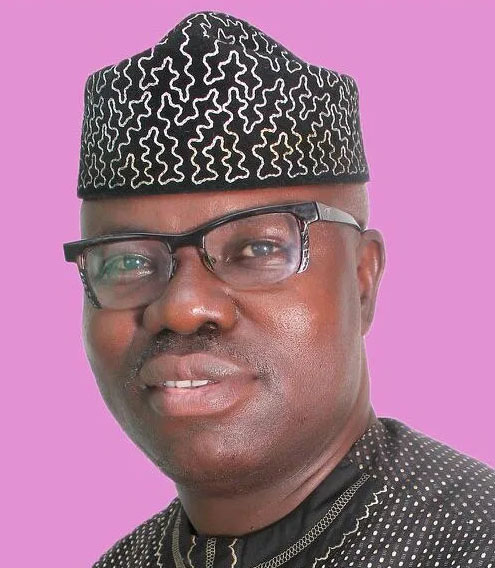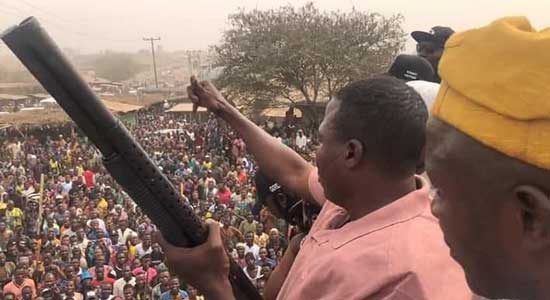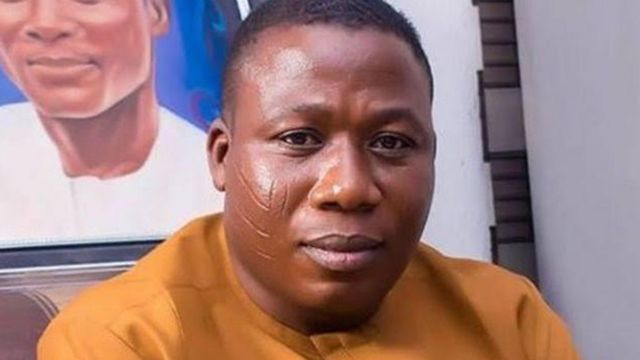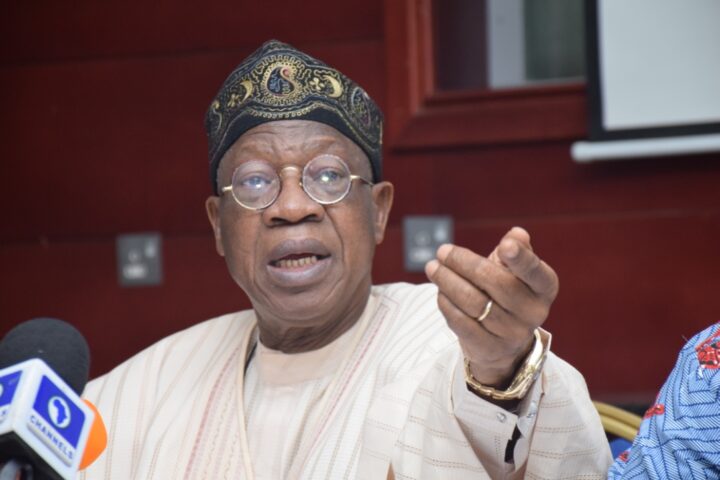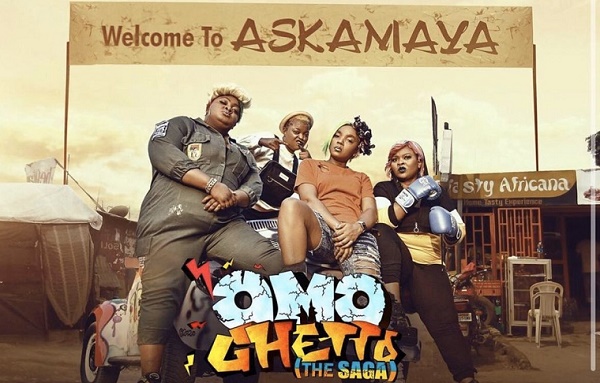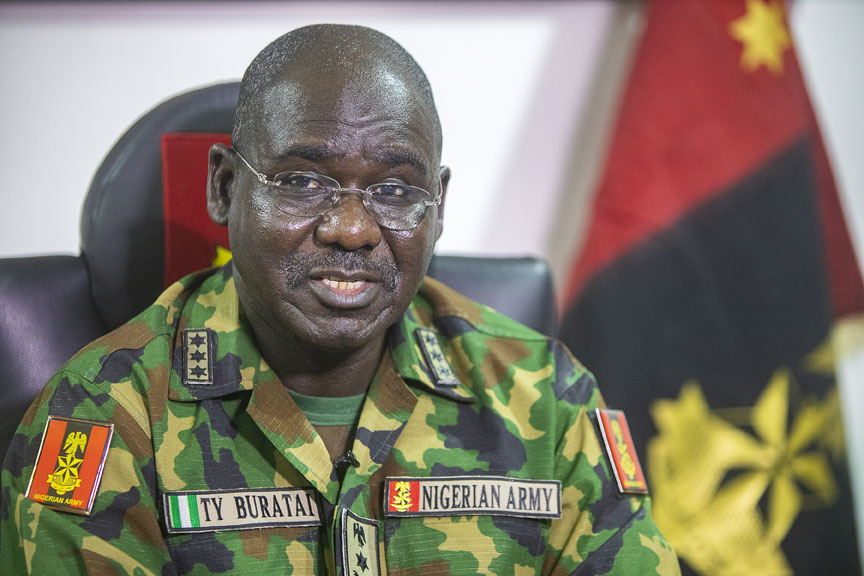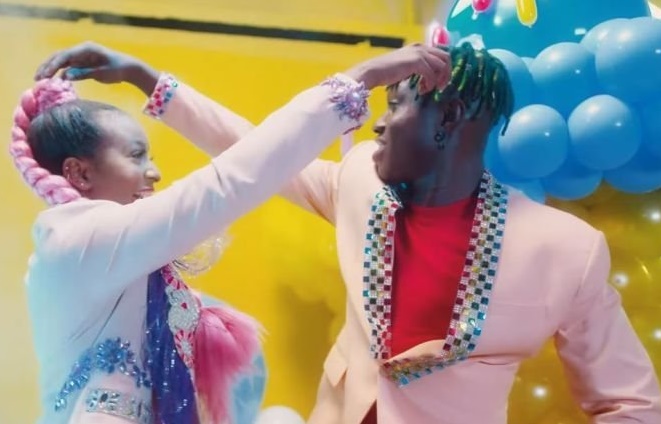Once again, Nigeria is tottering at the precipice. The last time I felt this way was 1993 after the annulment of the June 12 presidential election and an implosion hung precariously in the polity after the mandate of late Moshood Abiola was annulled. The events that followed that, fed and sustained in very dangerous narratives till the very end of the military rule, portended nothing at that time other than a break up of the entity called Nigeria.
Those who were old enough to witness the commencement of the Nigerian civil war in 1967 say that the drumbeats of war they heard then sound similar to what they hear now.
Let’s be hopeful there can be a rethink, one strong enough to pull back the strings and save Africa’s most populous nation the stress of disintegration.
Hours before setting out to write this, I had a lengthy conversation with a notable Nigerian leader, now an octogenarian, who I placed so much trust in his ability to speak the truth to power at the right places. My proposal was for him to immediately initiate a meeting of like-minds that would culminate in an equally urgent meeting of heads across Nigeria with a view to dousing the tension that hangs so palpable in the air with an odious smell of pains, tears and blood.
Advertisement
Sadly, he felt disillusioned. Unable to dismiss my suggestions yet, he was however saddened by the fact that not long ago, he initiated a similar meeting at the highest place where he called attention to the imminent confusion across the land if decisive actions were not taken to mend fences and set in motion a chain of actions that would preempt what appeared a clear and present danger.
A troubled federation that we have been, there has not been a time since the end of the military rule in 1999 that Nigeria came so close to being this cacophonous, distrustful of one another and ready to pounce on themselves than the last one month. Every second now looks like the terrible moment that the conflagration could be ignited, the end of which no one can predict.
In the midst of growing feelings of insecurity in the seemingly ‘peaceful’ south-west region of Nigeria, a sudden surge in cases of kidnapping, killings, rituals and other forms of crimes have led to increased mutual suspicion and the outcome is the dangerous ethnic profiling of criminals behind the spate of attacks in their various dimensions.
Advertisement
A near-total failure of the country’s security architecture has resulted in a catastrophic rise in and popularity of self-defence mechanism that promises to lead Nigeria nowhere except her Rwanda. A friend once said that Nigerian leaders don’t see a problem until it explodes on their faces.
That precisely is my thinking on the sudden emergence of Sunday Adeyemo (Sunday Igboho) a man who knew his limits even in the world of alleged political brigandage. Three months ago, Aare Ona Kakanfo, Gani Adams raised the alarm on the influx of undesirable elements in their various looks into the South-West of Nigeria through Oke-Ogun/Ibarapa axis of the South-West.
Well, in the characteristic lazy and lackadaisical responses to threats, what I call a feeble attempt was made by a few security organisations to make some show of force pretending to root out the criminals lurking in the forests of Ibarapa, Igboora and other belly of the Oke-Ogun.
Sadly, since Adam raised the alarm, not a bit were the Czars of mayhem, kingpins of kidnapping and mentors of marauders in that part of the South-West shaken. How else, do you explain this? A head of an ethnic group, known to have become established authority in negotiating the release of kidnapped locales in the community that hosts him!
Advertisement
That, till this moment, was the undisputed profile of the Seriki Fulani of Igangan, Saliu Abdulkadir. Speaking with locales, stories abound of how you dare not even approach the residence of Abdulkadir without passing through at least three ‘check-points’ manned by his own goons. This was the ‘lions den’ that the late Dr. Fatai Aborode reportedly visited to make a report of his destroyed 600 acres of farms last year before he met his brutal end.
I won’t fall into the error of ethnic profiling of crimes that have become a relished pastime for Nigerians and unfortunately fuelled by media (online and conventional) narratives. Thus, the Seriki Fulani of Igangan to me is as guilty as any other Yoruba unconscionable character or an Igbo kidnap kingpin operating in Abia and collecting his ransom in Akure. Criminals are criminals.
Last year, I travelled along the Abeokuta-Igboora-Eruwa Road. Between Abeokuta and Eruwa, one of those in my company was saddled with the responsibility of counting the number of security checkpoints. Arriving Eruwa, a journey of about 50 minutes from Abeokuta, we had counted 23 security posts.
But then, this raised in me a greater fear of insecurity as I wondered the degree of insecurity that had commanded this level of proliferation. I compared this scenario to some 15 years ago when I frequently travelled the same route even in the dead of the night all alone and when perhaps I encountered only one police checkpoint on the way or in some cases none at all.
Advertisement
Today, who is that fellow who travels across Nigerian roads without entertaining the phobia of the road devils? We have suffered untold reductions in the quality of every aspect of our lives.
I monitored the meeting held in Igangan in the aftermath of the hoopla raised by Igboho when residents had a field day to open up before the delegation from the Inspector General of Police. What was clear in the air were the efforts of the community to bring their plights to the knowledge of the authorities in both the state and the federal levels. No help came!
Advertisement
Igboho may be unlettered. But his revolutionary braving of odds to bring the plights of his people cannot be dismissed. You may dig deep to say his antecedents are not too enviable, but he may have succeeded in emerging as a champion of the oppressed, a record that will be hard to erase. If Oyo State and indeed the whole of the South-West is finally rid of the marauders, it will be hard to tell the tale without ample mention.
Igboho put in a sad context of the Nigerian situation, represents one of the millions of the unorthodox, non-state actors that have been pushed to the walls to come up with unorthodox solutions. Every recognizable community in Nigeria today has an Igboho in its midst and the community lookup more to them than even our funded security personnel.
Advertisement
Why did it take Governor Rotimi Akeredolu’s quit notice from his state’s forest reserves before the Presidency weighed in on the tragedy that had befallen Ondo in forms of daily kidnapping, killings and raping of innocent souls?
The Nigerian Police Force, the Nigerian Army, The Nigerian Air Force, The Navy, Nigerian Security and Civil Defence Corps, and other military and para-military formations are the known, orthodox security machinery of the state maintained by the taxpayers’ money in Nigeria.
Advertisement
The emergence of many non-state actors such as Igboho aptly illustrates the failure of these networks and their inability to provide security of lives and property of the people which is the primary objective of every government.
I still wonder how the authorities believe that the current unitary command of the police in Nigeria will work. The signal that emanates from Louis Edet House in Abuja simply becomes weak and evaporates before it gets to Iwo in Osun, Abakaliki in Ebonyi or Malamadori in Jigawa. The result, in the end, is that no policing takes place and everyone is just a lord unto himself in the very small domain that he colonizes. The monster that the Special Anti-Robbery Squad (SARS) eventually morphed into is one of the direct, ugly outcomes of having a behemoth as a security outfit.
And in the midst of this festering confusion, what should have been embraced as a quick solution to tackle crime much more effectively is gradually becoming another albatross.
Last month, I saw a huge crowd of able-bodied men of the South-East extraction answering to the call of the self-acclaimed leader of the Indigenous People of Biafra (IPOB), Nnamdi Kanu to mass themselves into an army of community police. It was ostensibly in response to the formation of the South-West Security Network (Amotekun) presented as a child of necessity and a response to the strange surge in criminality.
The last few days have witnessed bloody engagements between members of the Eastern Security Network and the Nigerian Army especially in Orlu, Imo State.
From North much earlier had emerged similar groups like the Hisbah and the Civilian Joint Task Force (Civilian-JTF) dealing with issues of security breaches and insurgency in the northern part of the country.
There must be the political will to allow for state police. This is to create a synergy between the conventional Nigerian security machinery to make the community efforts compliment to stem the tide. Failure to do this will only lay Nigeria vulnerable to the combined rape of an incubus and succubus. Let’s all be guided before it’s too late for the drumbeat is getting louder.
Semiu Okanlawon is a journalist, author and communication consultant. You can reach him via [email protected]
Add a comment
